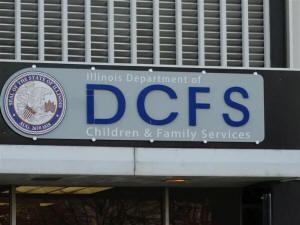Legislature approves bill to prioritize family members in foster care
 Send a link to a friend
Send a link to a friend
 [January 07, 2025]
By Ben Szalinski, Amalia Huot-Marchand and Medill Illinois [January 07, 2025]
By Ben Szalinski, Amalia Huot-Marchand and Medill Illinois
SPRINGFIELD — A bill soon heading to Gov. JB Pritzker’s desk would
direct foster care officials in Illinois to prioritize placing children
with relatives.
The House voted unanimously on Monday to pass the Kindship in Demand
Act, or KIND Act. House Bill 4781 puts an obligation on the Department
of Children and Family Services to use a “kin-first approach” when
placing children in foster care settings. Lawmakers and advocates said
it’s better for children to be placed with a family member or another
person close to the child when possible.
“If we can stabilize 10 or 12 kids, we’re going to change somebody’s
community,” Rep. Marcus Evans, D-Chicago, told the House Adoption and
Child Welfare Committee on Sunday.
Pritzker previously voiced support for the idea at a news conference in
December.
The approach ultimately will allow the state more access to federal
funds, Nora Collins-Mandeville from the American Civil Liberties Union
of Illinois told the committee Sunday. Currently, the state reimburses
family members for care costs, but once they become certified under the
new bill, the state can get more federal funding to cover those
expenses.

Like most other state agencies, DCFS faced challenges during a two-year
budget impasse that ended in 2017 and strained the system’s funding and
ability to promptly place children in care settings.
The Pritzker administration has ramped up funding for the agency, but
former DCFS director Marc Smith was found by a Cook County judge in
contempt of court multiple times in 2022 for failing to find adequate
placements for foster care children, some of whom were residing in
psychiatric hospitals beyond medical need. An appellate court later
vacated the contempt citations.
Rep. Steve Reick, R-Woodstock, said Monday that state lawmakers and DCFS’
new director, Heidi Mueller, have taken a different approach in recent
years.
“I don’t think we would’ve seen this two years ago because there’s a new
way of looking at child welfare,” he said.
Nearly 10,000 children in DCFS care live with family members, but more
than 60% of those families are not eligible for monthly foster care
payments, clothing vouchers, or foster care support groups, according to
the ACLU.
Kin-first foster systems have decreased risk of abuse and give a higher
chance of achieving permanency, according to Casey Family Programs — the
nation’s largest foundation focused on foster care.
[to top of second column]
|

Capitol News Illinois file photo by Peter Hancock

DCFS reduced the number of children and young adults in its care from
50,000 in 1995 to 16,000 in 2023. The number, however, has risen in the
past year to 18,000.
Illinois’ foster care system ranked in the bottom third of states in
2019 for children placed in permanent homes, according to the U.S.
Department of Health and Human Services. Between 2017 and 2021, the
number of children who were placed in a permanent home decreased by
7.8%, according to the 2021 Child Welfare Outcomes Report to Congress.
“We know that placing youth in the child welfare system with relatives
lessens the trauma associated with family separation, reduces the number
of times a child is moved, enhances permanency options if youth cannot
be reunified, results in higher placement satisfaction for youth in
care, and delivers better social, behavioral, mental health, and
educational outcomes for youth than when they are placed in non-kin
foster care,” Collins-Mandeville said in a statement.
Under the KIND Act, there would also be different criminal background
criteria for relatives and foster parents. The federal government allows
DCFS to waive “non-safety-related licensing” for relative caregivers on
a case-by-case basis. Relatives would be subject to a personal analysis
assessing their criminal record and its potential impact on the child.
The bill would allow DCFS to consider, for example, the
overrepresentation of minorities in the prison system, especially for
minor drug felonies.
Courts would also have a larger role in family-finding efforts like
monitoring whether DCFS complies with notifying relatives that a child
has been removed from its parents’ custody within 30 days.
Amalia Huot-Marchand is a graduate student in
journalism with Northwestern University’s Medill School of
Journalism, Media, Integrated Marketing Communications, and a Fellow
in its Medill Illinois News Bureau working in partnership with
Capitol News Illinois.
Capitol News Illinois is a nonprofit, nonpartisan
news service that distributes state government coverage to hundreds
of news outlets statewide. It is funded primarily by the Illinois
Press Foundation and the Robert R. McCormick Foundation.
 |